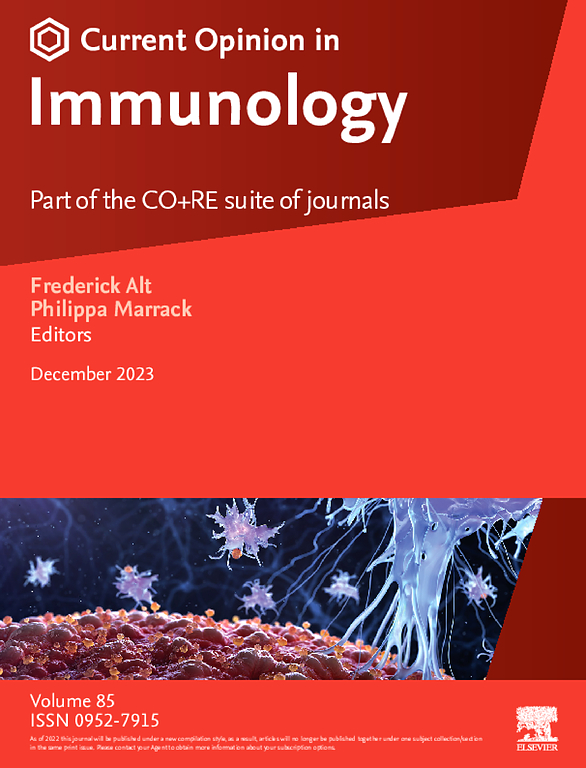The role of epigenetics in inflammatory memory
IF 5.8
2区 医学
Q1 IMMUNOLOGY
引用次数: 0
Abstract
Inflammatory memory refers to the ability of an organism to mount a stronger or faster response upon re-exposure to similar inflammatory stimuli. This heightened sensitivity was once thought to be a unique characteristic of immune cells. However, recent studies have challenged this traditional view, revealing that inflammatory memory is a widely prevalent phenomenon that extends beyond immune cells to include nonimmune cells. These studies indicate that the formation and maintenance of inflammatory memory largely depend on the regulation of epigenetics. Epigenetics involves heritable changes in gene expression without altering the DNA sequence, including mechanisms such as DNA methylation and histone modifications. These modifications regulate gene transcription and influence the cellular response to inflammatory stimuli. In this review, we will discuss the epigenetic mechanisms of inflammatory memory in both immune and nonimmune cells, focusing on new mechanistic insights from the past few years, and briefly discuss the unknowns and future strategies.
表观遗传学在炎症记忆中的作用。
炎症记忆是指生物体在再次暴露于类似的炎症刺激时产生更强或更快反应的能力。这种高度的敏感性曾被认为是免疫细胞的独特特征。然而,最近的研究已经挑战了这一传统观点,揭示炎症记忆是一种广泛存在的现象,它延伸到免疫细胞以外的非免疫细胞。这些研究表明炎症记忆的形成和维持在很大程度上依赖于表观遗传学的调控。表观遗传学涉及在不改变DNA序列的情况下基因表达的遗传变化,包括DNA甲基化和组蛋白修饰等机制。这些修饰调节基因转录并影响细胞对炎症刺激的反应。在这篇综述中,我们将讨论免疫和非免疫细胞炎症记忆的表观遗传机制,重点关注过去几年来新的机制见解,并简要讨论未知和未来的策略。
本文章由计算机程序翻译,如有差异,请以英文原文为准。
求助全文
约1分钟内获得全文
求助全文
来源期刊
CiteScore
13.30
自引率
1.40%
发文量
94
审稿时长
67 days
期刊介绍:
Current Opinion in Immunology aims to stimulate scientifically grounded, interdisciplinary, multi-scale debate and exchange of ideas. It contains polished, concise and timely reviews and opinions, with particular emphasis on those articles published in the past two years. In addition to describing recent trends, the authors are encouraged to give their subjective opinion of the topics discussed.
In Current Opinion in Immunology we help the reader by providing in a systematic manner: 1. The views of experts on current advances in their field in a clear and readable form. 2. Evaluations of the most interesting papers, annotated by experts, from the great wealth of original publications.
Current Opinion in Immunology will serve as an invaluable source of information for researchers, lecturers, teachers, professionals, policy makers and students.
Current Opinion in Immunology builds on Elsevier''s reputation for excellence in scientific publishing and long-standing commitment to communicating reproducible biomedical research targeted at improving human health. It is a companion to the new Gold Open Access journal Current Research in Immunology and is part of the Current Opinion and Research(CO+RE) suite of journals. All CO+RE journals leverage the Current Opinion legacy-of editorial excellence, high-impact, and global reach-to ensure they are a widely read resource that is integral to scientists'' workflow.

 求助内容:
求助内容: 应助结果提醒方式:
应助结果提醒方式:


